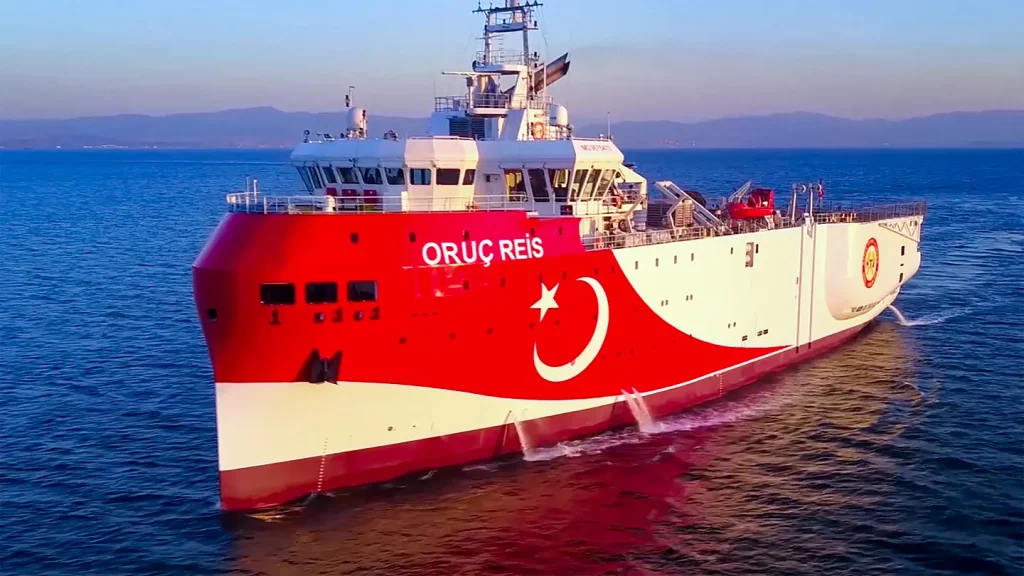Turkey is preparing to send frigates to Somali waters to safeguard a Turkish energy research vessel, according to sources familiar with the situation.
This move follows an agreement between Turkey and Somalia earlier this year, which grants Ankara the authority to protect Somali waters from external threats and the rights to explore and drill for energy within Somalia’s exclusive economic zone.
Last week, Turkish Energy Minister Alparslan Bayraktar revealed to local media that Turkish Petroleum holds a licence for three areas in Somali seas, each covering 5,000 square kilometres. Bayraktar announced that the Oruc Reis vessel would conduct a 3D seismic survey in the region, marking a first-of-its-kind exploration effort in these waters.
To ensure the safety of the operation, Bayraktar confirmed that Turkish naval forces would provide protection. Sources indicated that Ankara is planning to deploy two frigates along with auxiliary ships to secure the area.
While Turkey has conducted energy exploration in the Eastern Mediterranean, often facing objections from Greece, the waters near Somalia and the Gulf of Aden present a new set of challenges for Turkey’s drilling ambitions.
Bayraktar expressed optimism about potential oil discoveries in the selected fields, stating that the Oruc Reis will begin its mission in October. Should oil be found, a production-sharing agreement will see Turkey and Somalia divide the resources.
“After giving them the state rights they need to get, as long as you have oil, you can sell it anywhere in the world,” he said.
“We can bring it to refineries in our country. Therefore, it will be possible for it to be commercialised quickly and added to the economy,” Bayraktar said, highlighting the economic potential of the project.
Earlier this year, Turkey and Somalia signed a defence and economic cooperation agreement aimed at enhancing Somalia’s maritime defence capabilities and supporting the creation of a Somali navy. The agreement was reportedly reached in response to Ethiopia’s deal with Somaliland in January, which grants Addis Ababa the right to construct a military port in the breakaway region.
Turkey also hosted two rounds of talks between Mogadishu and Addis Ababa to resolve tensions, but no consensus has been reached so far. In March, Turkey and Somalia solidified their cooperation by signing an oil and gas exploration deal, giving Ankara the green light to explore Somali offshore fields.

